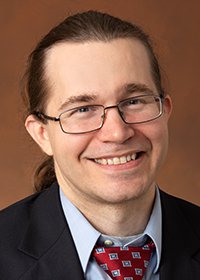


4800 Oak Grove Drive
M/S 82-105
Jeffrey joined the JPL robotics section in 2018 and left in Sept 2025. During that time, he played key roles in JPL's participation in the DARPA Subterranean Challenge, DARPA RACER, DARPA LINC, and NAISR projects. He focused primarily on improving the development/integration/testing of new software/hardware for autonomous off-road vehicles. He was heavily involved in the development of simulation based testing tools. He also lead or participated in over 40 multi-day field test campaigns of autonomous robots in underground or off-road environments outside of Los Angeles county.
Jeffrey began his career working part-time at the Center for Advanced Computing Research (CACR) at Caltech, building and maintaining Beowulf supercomputing clusters. While studying Physics as an undergraduate at Caltech, he worked on data analysis algorithms for the Laser Interferometric Gravitational Observatory (LIGO). Upon completion of his undergraduate work, he joined JPL section 3266 to develop a simulation of the galactic gravitational background in Laser Interferometer Space Antenna (LISA) data. He then returned to Caltech to work with Dr. Adami and Dr. Burdick as a graduate student in the Computation and Neural Science (CNS) program. There he collaborated with JPL on the development of the Axel II and III rovers (leading to US Patent 8,496,077 B2) and DuAxel. He also studied evolving developmental neural networks, information integration in stochastic logic networks, EMG data analysis, and epidural electrostimulation of spinal cords. His Ph.D. thesis was titled: "Numerical investigation of spinal neuron facilitation with multi-electrode epidural stimulation."